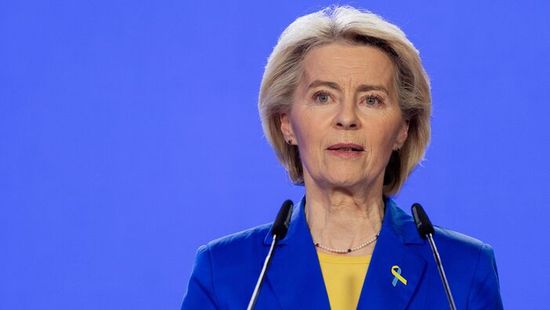Orbán móresre tanította Von der Leyent: megmutatta neki, mire képesek a magyarok (VIDEÓ)

„A szuvereintás jobb üzlet” – jelentette ki a Nézőpont Intézet vezetője.

The eurozone's crisis is dragging down the entire global economy – real economic and political union is now urgent.
„One of Europe's key challenges will be a readjustment of the social compact. A social safety net is necessary to allow for labour flexibility when workers need to change jobs and industries over their working lives. But it must face the reality of a fiscal squeeze brought on by the demographic shift to ageing societies. Finally, beyond these more technical steps, the greatest stumbling block to the assured success of Europe is the lack of legitimacy of its institutions. Only stronger institutions can save Europe, but their strength can be enhanced only through greater popular support. Yet that support is being undermined daily by their present ineffectiveness.
In this sense, the crisis in Europe today is above all political. Further political integration and union can only be built hand in hand, step by step, through a broad and deep engagement of the public. The democratic deficit deriving from the perception that important decisions are taken by unelected Eurocrats in Brussels needs to be filled by political reforms that empower further the European parliament, and by appropriate forms of democratic oversight of legislative and executive decisions.
In short, the greatest task of European leadership today is to re-sell the European idea. They need to remind the public that the absence of war, the freedom of mobility and the rising prosperity they have taken for granted since the end of the cold war has been due to the path toward unity and away from the nationalist demons of the past. To change course now is to put all of that at risk. That is why more European integration, not less, is the only solution.”